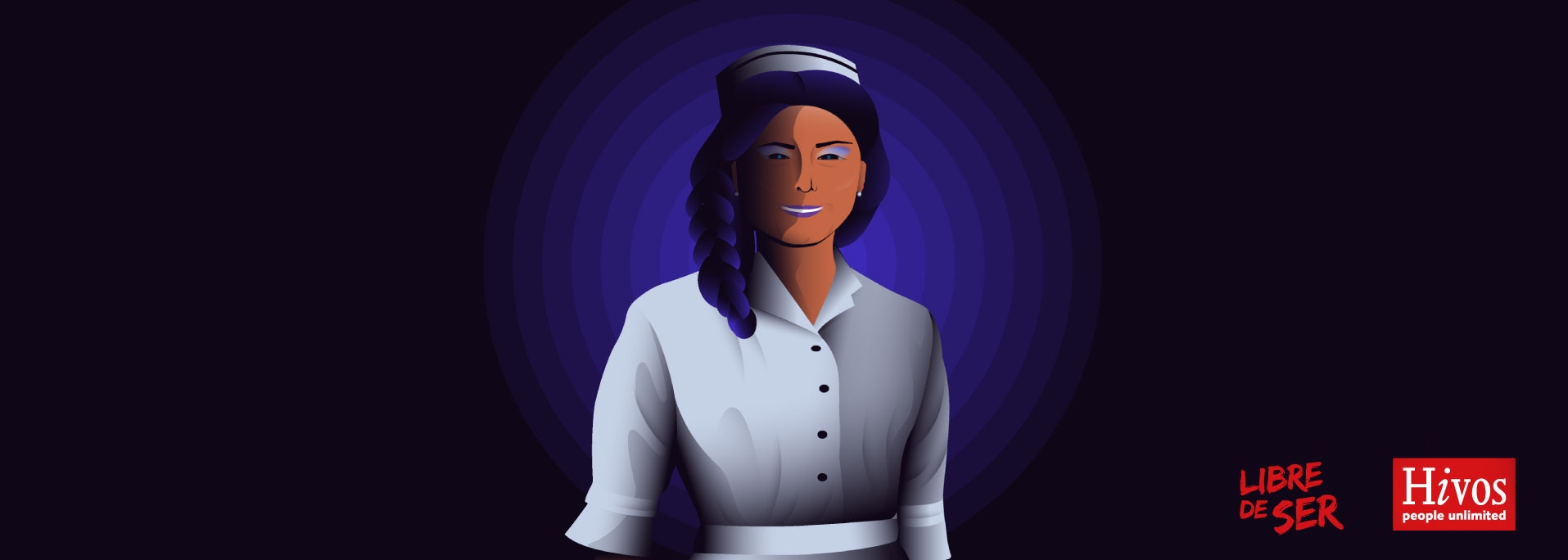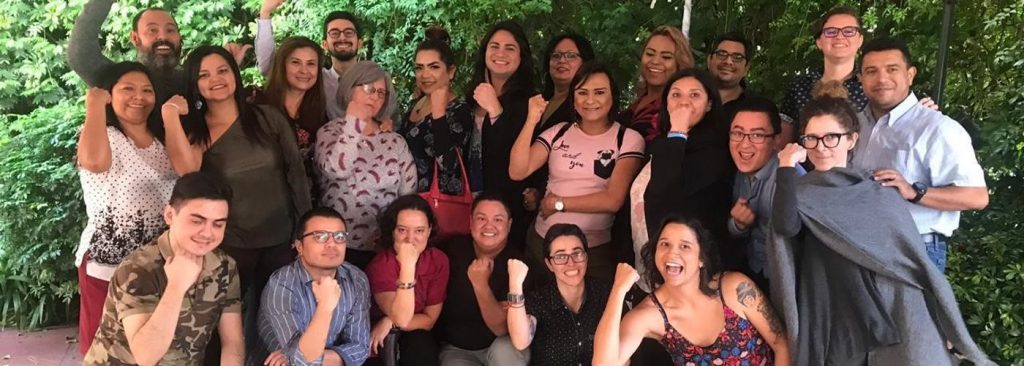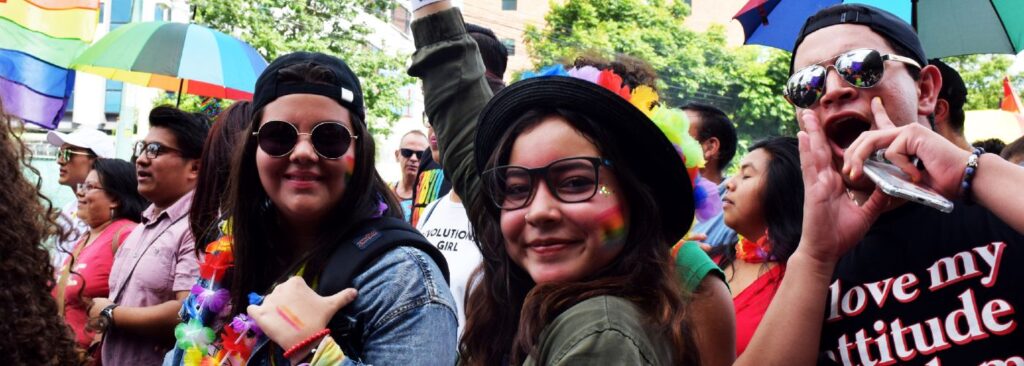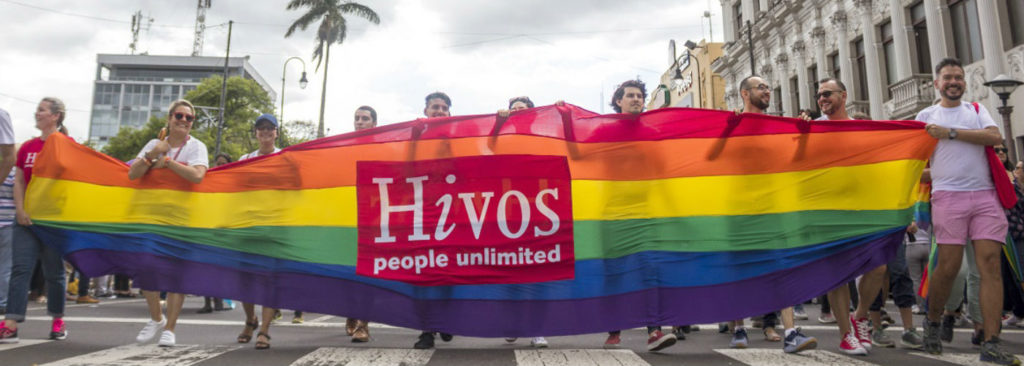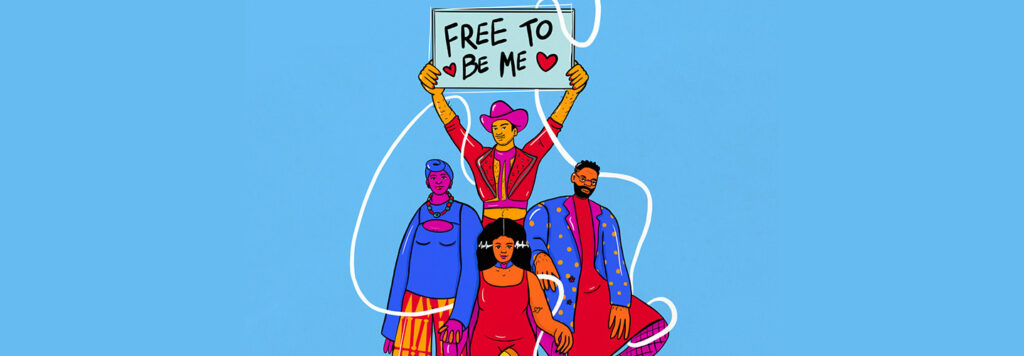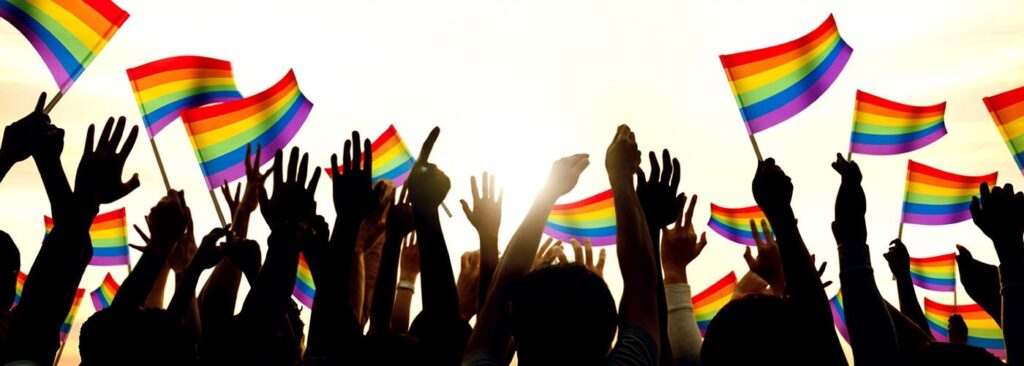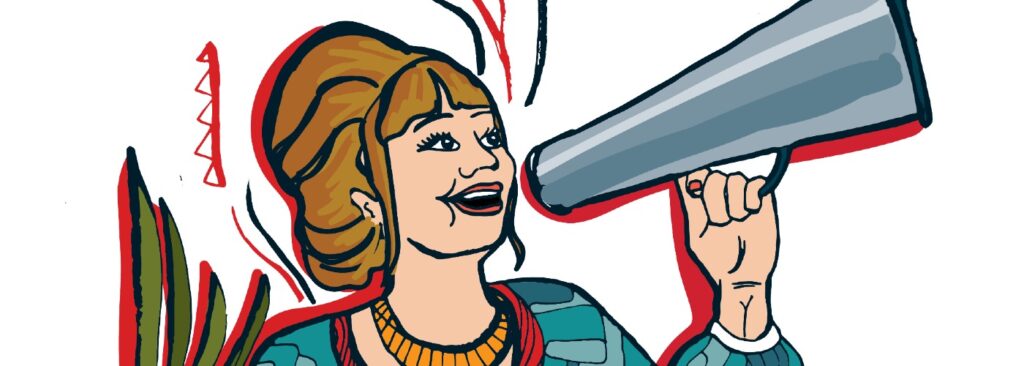This is a glimpse into a prejudiced, rural, and non-inclusive Nicaragua which is at the same time diverse, courageous, and resilient. LGBTIQ activist Jacob Ellis tells us the story of Yasuri Potoy Ortiz, a young trans woman. Narrated in the first person, the story shows what life is like for trans people in Nicaragua and how they struggle to get by. Jacob belongs to Mesa de Articulación LGBTIQ+ en el Exilio (MESART), an organization that supports sexual minorities in exile. He wrote this story with the support and mentoring of journalist Javier Estrada. The illustrations are by designer and illustrator Diego Xocop.
My name is Yasuri Potoy Ortiz. I was born on Ometepe Island in Lake Nicaragua, the largest freshwater lake in Central America. The blood of humble and hard-working people who respect nature and love their traditions runs through my veins.
But growing up, I wasn’t always loved or respected. The most difficult time was during primary and secondary school when I was constantly bullied by kids who called me “cochón”, “maricón”, and “playo” (derogatory words that refer to homosexuals). This hurt me to the point that I began to pretend to be like other boys because I thought it was the only way to stop the attacks.
When I reached adolescence, my body began to define itself as male, but my voice didn’t change as much as usual at that age. In fact it became even more feminine, and I only had to say one word and people just assumed I was homosexual. I also have indigenous ancestry, and was taunted for my Native looks as well.
But the thing that really marked my life forever happened during my sophomore year of high school, when I was 15. I met a gay boy who invited me to participate in a beauty contest. That’s when I began to acknowledge my true identity.
I had never participated in a beauty contest, but the prize of 1500 córdobas (about $78 at the time) convinced me because we were quite poor and Mother’s Day was coming up. I wanted to give my mom a nice gift since she had always given me her unconditional love. So I decided to do it.
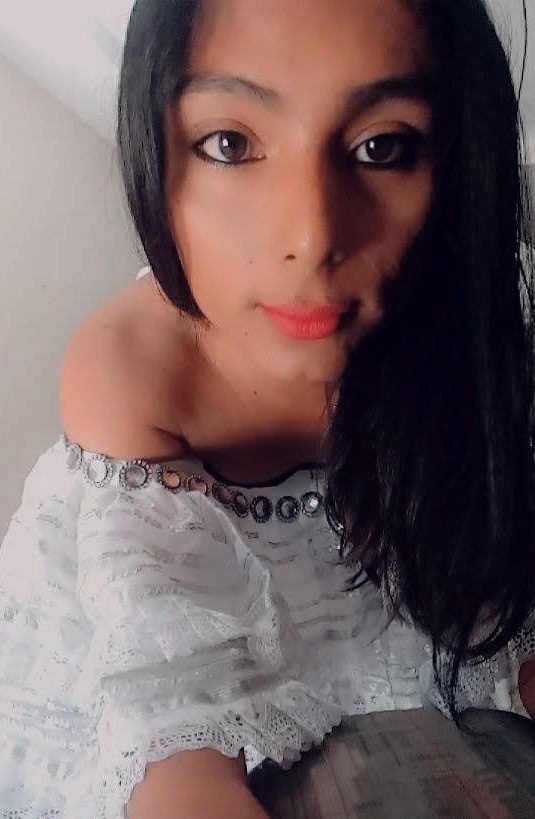
The birth of Yasuri
On the day of the contest, I traveled 6 kilometers by bus from my town, Altagracia, to Urbaite. Since I was still so young, I felt anxious and fearful. But when I got there, I was relieved to meet other gay boys from Masaya who were also transvestites.
I still remember that moment as if it were yesterday: the moment when I first saw my real self.
The organizer asked for my contest name, but I didn’t have one, so he named me Mística Yasuri Johnson. He gave us costumes and makeup, and that’s how my transformation began. After two hours of preparation, including piercing my ears so I could wear earrings, I was ready to look at myself in the mirror.
I still remember that moment as if it were yesterday: the moment when I first saw my real self. When for the first time I saw myself as a woman, recognized myself as a woman, and was a woman. I was finally able to be what I had felt like since I was a child.
The femininity reflected by the mirror revealed my true identity. Suddenly, I could feel the solidarity of the other girls. One of them helped me get dressed and told me that my face was very beautiful. That was so comforting. For the first time I felt like I was part of a group, that I was accepted and, above all, that I finally knew who I was.
However, the same day I was born as Yasuri, I also learned to feel the fear that comes with being a trans woman. My appearance was sure to invite violence in macho and prejudiced Nicaragua.
The contest venue was very small, and there were so many people in the audience that some had climbed on a fence to watch from outside. It was the first gay event to be held there because homosexuality was extremely frowned upon by Nicaraguan society, especially by religious authorities.
I’ve always been good at expressing myself, so I did very well on stage. I remember not being either afraid or ashamed. My inner voice cried out to be heard, and people were amazed by my performance. Although I ended up winning second prize, I had actually won something much more valuable: my identity.
Small Town, Big Hell
It was a bittersweet night. I finally felt like a woman, but I also experienced in person the machismo prevalent in my country and the entire region. The organizer told me that the pageant had not made a profit, even though the venue was packed and I was sure the owner had made enough money to pay us. So the only “prize” I got was 5 córdobas (about 25 cents) for the bus fare home.
We were clearly taken advantage of. And to be a woman in a patriarchal society is to be at a clear disadvantage all the time.
In Nicaragua the saying “small town – big hell” is true. That’s because news travels fast. When I got home, my mother had already heard about me being in the contest because everyone in town was talking about it. “What will people think of you now?” she said. I told her the only opinion that mattered to me was hers. The truth is that I was ashamed for having returned empty-handed, and it hurt me deeply that the Mother’s Day “gift” I gave her was the scandal that broke out.
Hatred had stopped me – but fortunately not for long.
After managing to finish high school in the midst of great hostility, I didn’t feel like facing ridicule again. So, for the next two years I did nothing. Hatred had stopped me – but fortunately not for long. I decided to enroll in the nursing school at the National Autonomous University of Nicaragua (UNAN-Managua), a famous public university. I wanted to become a nurse because I’ve always cared for other people.
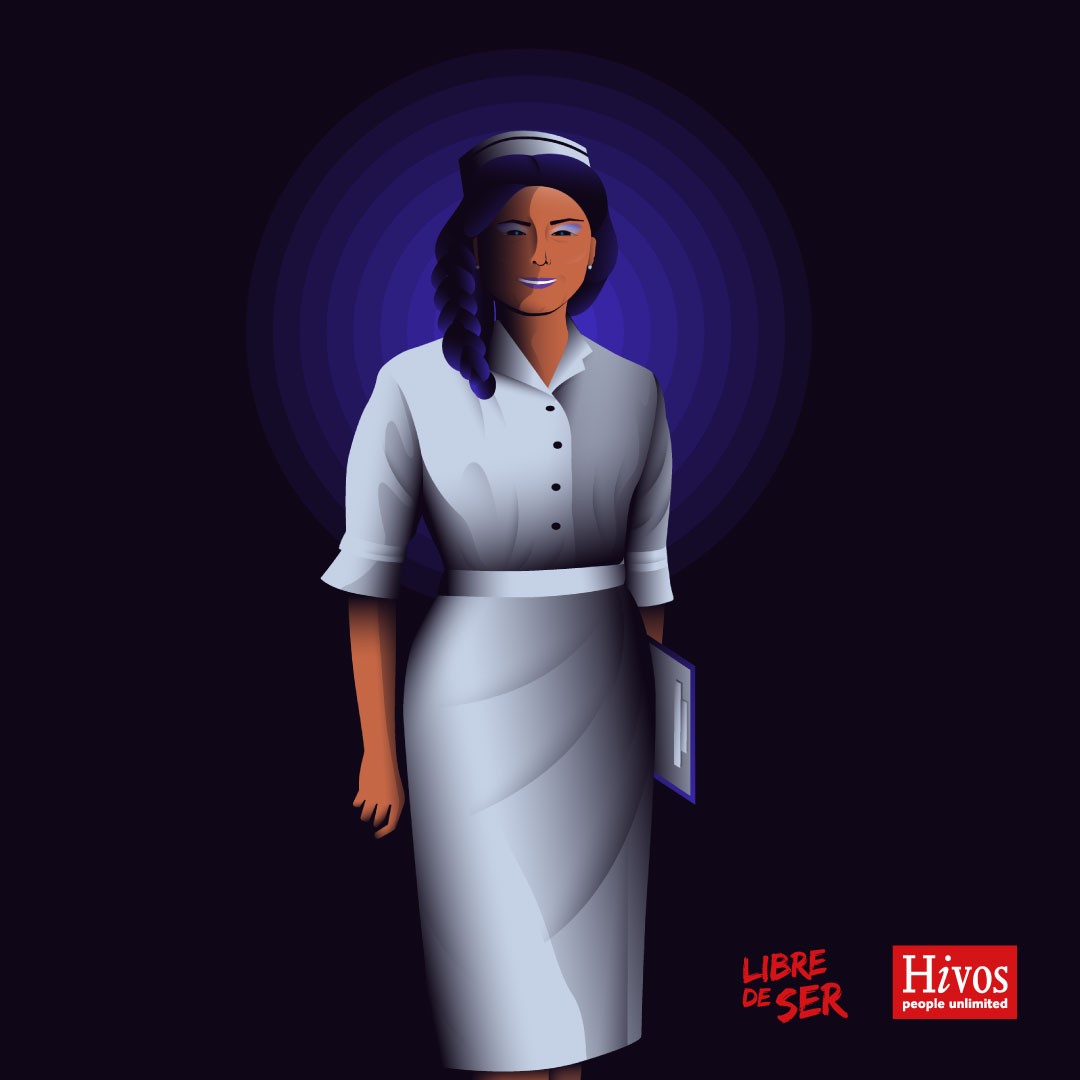
Between tolerance and violence
I started studying in 2014 and found university to be a world of tolerance, but not acceptance. There was a certain degree of openness toward sexually diverse people. One of my best friends was a teacher. She accepted and respected me and always called me by my trans name, Yasuri. I even won a beauty contest called Miss Gay Top Model in 2016, during my third year of college.
But there was also a lot of discrimination, and even violence against people who were different. In the hallways, prejudiced students would look at me with contempt and hurl insults as I passed. I once failed a class because the teacher could not accept my identity. And I was told that if I were selected for an intern scholarship, I’d be sent me to a men’s nursing home because, “Like it or not, you are a man.”
There was discrimination even at the institutional level. According to university rules, only women were allowed to have long hair; men had to wear short hair. This was really hard for me because for many trans women, long hair is an integral part of our identity. But I learned that my essence as a person is not defined by my hair, but by my inner strength and what I feel. So in the end, I cut my hair.
Yet just as I faced discrimination and hatred, I also received support from friends and allies. Like my cousin, a stylist who gave me haircuts that were feminine, but didn’t break university rules. And a guy in my neighborhood who was a drug addict. One day, in front of a bunch of teenagers from the neighborhood, he declared I was his friend and anyone who dared touch me would be in trouble with him.
I remember him fondly, but also with great sadness. He was one of the many people murdered on May 30, 2018 by police and paramilitaries of the Daniel Ortega and Rosario Murillo regime.
Fleeing a troubled Nicaragua
Nicaragua took to the streets in April 2018 to protest against the regime of Daniel Ortega and Rosario Murillo. I joined them because, almost a qualified nurse, I could tend to those wounded by the police and the military. I was in charge of a street pharmacy and took medical supplies to the different stations set up by protesters. I don’t know how many people I treated around kilometer 14 on the highway to Masaya. Unfortunately, that was the best school I could have had.
It was either go into exile or become a political prisoner and risk death.
The protests were repressed by the regime brutally and indiscriminately, which made us all targets. However, trans people were particularly singled out for humiliation, rape, torture and even “disappearance.” Some of my friends had a horrible time in jail. I was expelled from the university, and harassed, slandered and threatened on social media to the point that staying in Nicaragua was no longer an option. It was either go into exile or become a political prisoner and risk death.
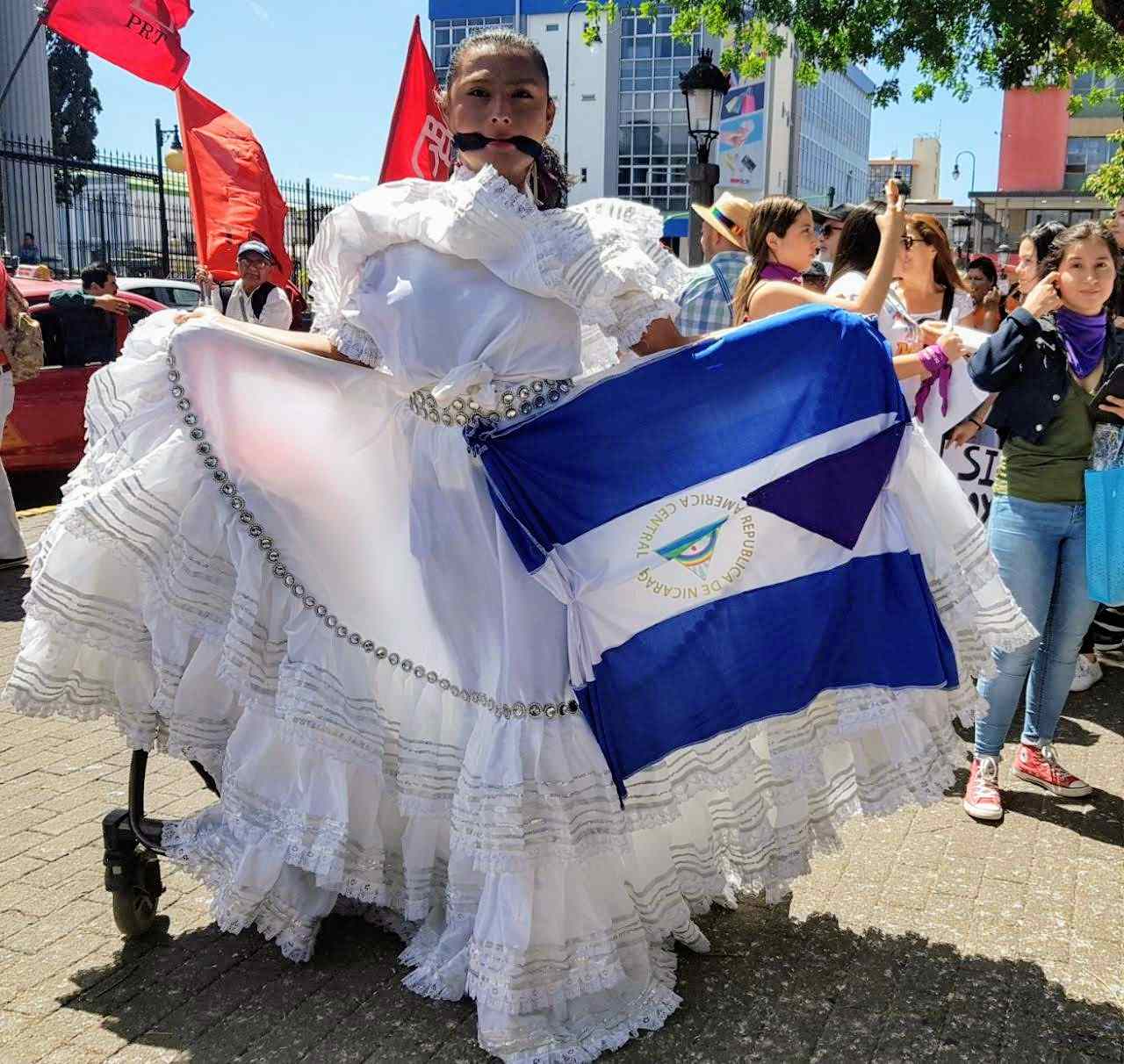
Even though I live in exile now, I often still feel afraid and insecure. In 2018, I was just about to become an OBGYN. Now all that is gone just because I wanted to save lives and couldn’t remain indifferent to injustice. I wanted a new society to prevail in Nicaragua. One based on respect, democracy, and justice – where everyone can fully enjoy their rights. Now I don’t have enough money to finish nursing school, let alone keep a roof over my head all the time. I’m just struggling to get ahead.
Why is my story important?
I wanted to share my story because, in the first place, I was strong enough to survive. Attacked for being a trans woman, discriminated against because of my indigenous features, and forced to flee political violence as a refugee, I’m still here.
However, I know there are many trans people who continue to face the enormous obstacles society puts in their way. So I’m raising my voice for the entire trans community. Especially for those who come from humble homes or who don’t have a home. For those who don’t meet the physical standards imposed by society. For those who have had the doors of education shut on them because of their gender identity. And for those who are often invisible within the LGBTIQ+ community itself.
I’ll keep fighting for a better, fairer, more inclusive and diverse Nicaragua. Conservative groups believe we are cursed, that we are carriers of diseases, that we’re the dregs of society. They attack us so relentlessly that we end up excluded or excluding ourselves from society. If they only took the time to get to know us and recognize our capabilities, the story would be different. We are not guilty of our reality; we are simply victims of the ignorance of others.
About Libre de Ser
Libre de Ser is a project implemented by Hivos, with the support of the Embassy of the Netherlands in Central America. The project works to safeguard the life and integrity of LGBTIQ+ people by using quality data on violence against this community and creating new narratives. The program’s journalism training further hones the communication skills and strategies of its partners to more effectively counter hate speech. This story is an example. For more information about the Libre de Ser Project, please contact Mercedes Alvarez Rudin at malvarezrudin@hivos.org.

